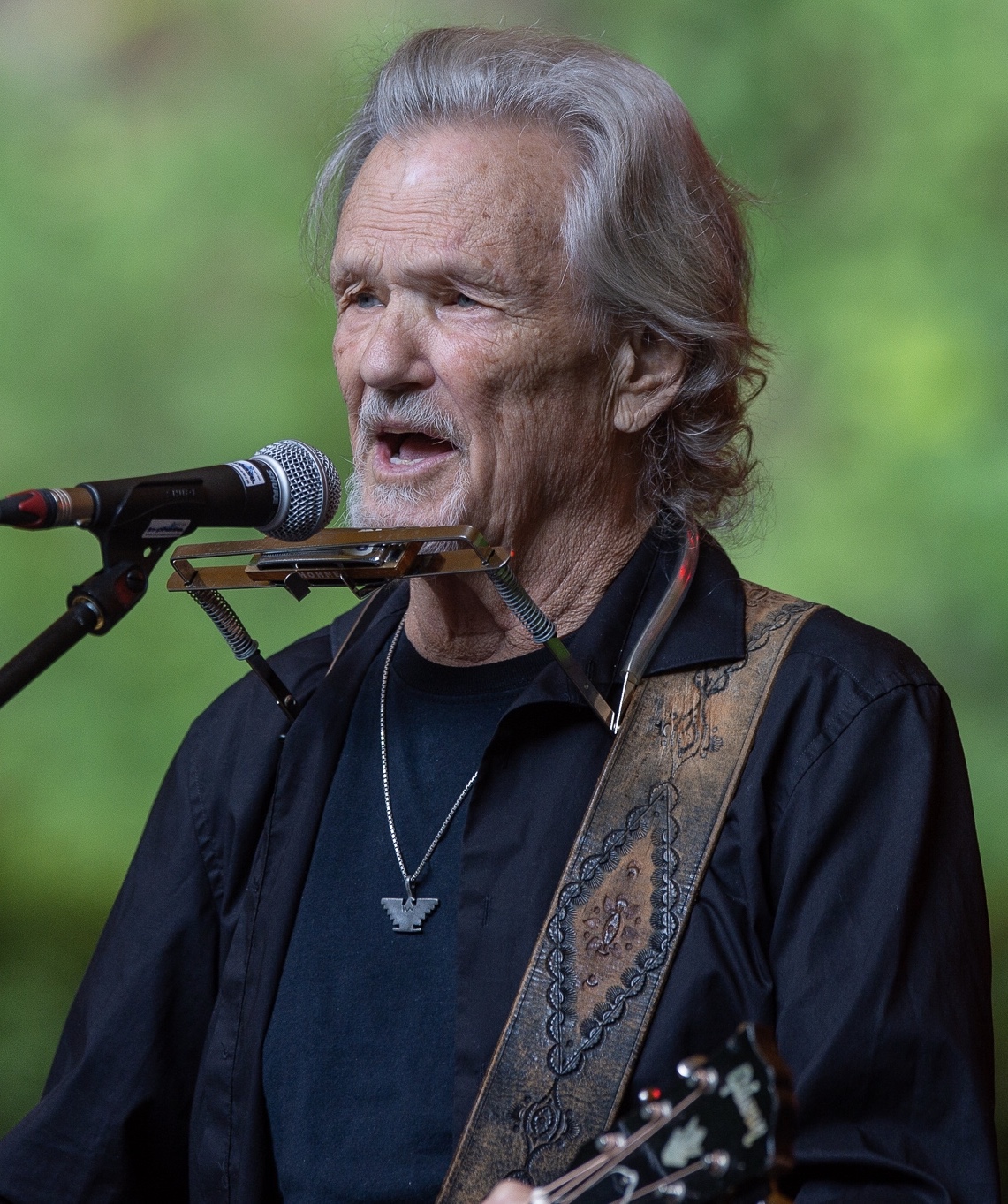
Kris Kristofferson
Kristoffer Kristofferson (born June 22, 1936) is an American retired country singer, songwriter, and actor. Among his songwriting credits are "Me and Bobby McGee", "For the Good Times", "Sunday Mornin' Comin' Down", and "Help Me Make It Through the Night", all of which were hits for other artists.
"Kristofferson" redirects here. For other uses, see Kristofferson (disambiguation).
Kris Kristofferson
- Musician
- songwriter
- actor
1959–2020
-
Frances Beer(m. 1960; div. 1969)
-
Lisa Meyers(m. 1983)
8
- Vocals
- guitar
- harmonica
In 1985, Kristofferson joined fellow country artists Waylon Jennings, Willie Nelson and Johnny Cash in the country music supergroup The Highwaymen, which was a key creative force in the outlaw country music movement that eschewed the traditional Nashville country music machine in favor of independent songwriting and producing.
As an actor, Kristofferson is known for his roles in Pat Garrett & Billy the Kid (1973), Blume in Love (1973), Alice Doesn't Live Here Anymore (1974), A Star Is Born (1976) (which earned him a Golden Globe Award for Best Actor), Convoy (1978), Heaven's Gate (1980), Stagecoach (1986), Lone Star (1996), and the Blade film trilogy (1998–2004).
In 2004, Kristofferson was inducted into the Country Music Hall of Fame.
Career[edit]
Military service[edit]
Kristofferson, under pressure from his family, joined the U.S. Army and was commissioned as a second lieutenant, attaining the rank of captain. He became a helicopter pilot after receiving flight training at Fort Rucker, Alabama. He also completed Ranger School.[17] During the early 1960s, he was stationed in West Germany as a member of the 8th Infantry Division.[18] During this time, he resumed his music career and formed a band. In 1965, after his tour in Germany ended, Kristofferson was given an assignment to teach English literature at West Point.[19] Instead, he decided to leave the Army and pursue songwriting. His family disowned him because of his career decision; sources are unclear on whether they reconciled.[20][21][22] They saw it as a rejection of everything they stood for, although Kristofferson says he is proud of his time in the military and received the Veteran of the Year Award at the 2003 American Veterans Awards ceremony.[23][24]
Music[edit]
After leaving the army in 1965, Kristofferson moved to Nashville. He worked odd jobs while struggling for success in music while burdened with medical expenses resulting from his son's defective esophagus. He and his wife soon divorced.
He got a job sweeping floors at Columbia Recording Studios in Nashville. He met June Carter there and asked her to give Johnny Cash a tape of his. She did, but Cash put it on a large pile with others. He also worked as a commercial helicopter pilot for south Louisiana firm Petroleum Helicopters International (PHI), based in Lafayette, Louisiana. Kristofferson recalled of his days as a pilot, "That was about the last three years before I started performing, before people started cutting my songs. I would work a week down here [in south Louisiana] for PHI, sitting on an oil platform and flying helicopters. Then I'd go back to Nashville at the end of the week and spend a week up there trying to pitch the songs, then come back down and write songs for another week. I can remember "Help Me Make It Through the Night" I wrote sitting on top of an oil platform. I wrote "Bobby McGee" down here, and a lot of them [in south Louisiana]."[25]
Weeks after giving Carter his tapes, Kristofferson landed a helicopter in Cash's front yard, gaining his full attention.[26] A story about Kristofferson having a beer in one hand and some songs in the other upon arrival was reputed, but has been disproven, with Kristofferson saying, "It was still kind of an invasion of privacy that I wouldn't recommend. To be honest, I don't think he was there. John had a pretty creative memory."[27] But upon hearing "Sunday Mornin' Comin' Down", Cash decided to record it, and in 1970 Kristofferson won Songwriter of the Year for the song at the Country Music Association Awards.